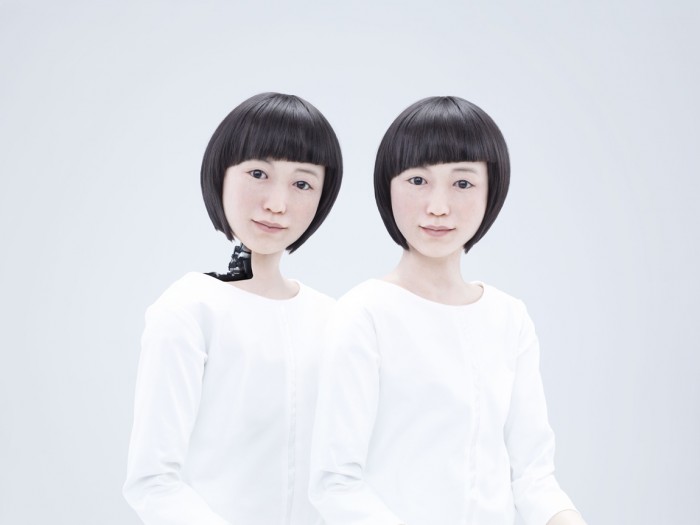
With so many design ventures around the world looking to tap into the seemingly limitless yet still rather shrouded subject of artificial intelligence, some scientists and industrial thinkers contemplate the question – how closely would robots have to mimic humans before we start considering them in moral terms?

Although true AI is a relatively new concept and something that still needs to undergo magnitudes of development before it reaches the science fiction whoop & flash that we have come to know in films, we have been designing computers and machines for our own humanly benefit for decades.
We install metal rods in our bodies to repair broken bones (making them far stronger than before) and we use digital gadgets on a daily basis to enhance our lives. Conversely, scientists have started to bestow the design of machines with certain nature-inspired characteristics to improve them.
For example, engineers at Massachusetts Institute of Technology have developed artificial muscles made out of nylon fibres, which “can have many applications, from robotics to components in the automobile and aviation industries.”
Simple mechanical systems can thus draw from an example of nature’s success – the design of a muscle – in which the material that it is made of reproduces the bending motions and elastic strength that natural tissues perform.
By taking inspiration from biology, we are able to enhance our man-made creations where applicable. Beyond improving the basic functionality of machines, designers have also started recreating human aesthetics in machine form.
Companies like True Companion and RealDoll are at the forefront of a progressive movement campaigning for the development of sex robots. Their designers are putting considerable effort into the creation of machines that look like humans with fastidious visual detail.

A reciprocal relationship is thus in operation here – we glean the best of technology to improve ourselves and we improve technology by installing the best aspects of nature. Functionality & aesthetics aside, would the next area of technological advancement be psychology? What would happen if we impart machines with emotion and independent thinking?
That is what critics of artificial intelligence are pondering. Would the cyclical relationship shatter the moment machines step onto an equal moral plane with us?
The popular television show Westworld puts forth an alternate universe that tackles this question. The programme is set in a fictional theme park – a technologically advanced, cowboy & Western-style amusement park that is populated by synthetic androids. Westworld caters to wealthy visitors who can do whatever they wish inside the park without fear of retaliation from the androids.
Tony Prescott, Professor of Cognitive Neuroscience at the University of Sheffield, comments to The Conversation on the thought-provoking depiction of artificial intelligence in Westworld and the sci-fi films that tread similar ground.
“The robots in Westworld have more than just human-like physical bodies, they display emotion including extreme pain, they see and recognise each other’s suffering, they bleed and even die… But from the start, this notion that a machine of such complexity is still merely a machine is undermined by constant reminders that they are also so much like us.
The disturbing message, echoing that of previous sci-fi classics such as Blade Runner and AI, is that machines could one day be so close to human as to be indistinguishable – not just in intellect and appearance, but also in moral terms,” he says.

Adding that we can take guidance from our own art and fiction to build some insight into this difficult-to-navigate existential subject, Prescott concludes –
“Stories such as Westworld remind us that as we progress toward ever more sophisticated AI, we should consider that this path might lead us both to machines that are more like us, and to seeing ourselves as more like machines.”






